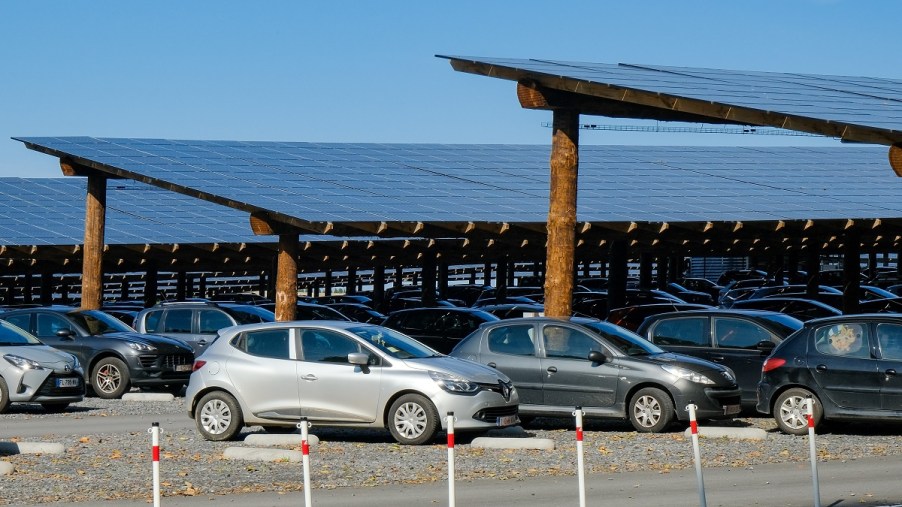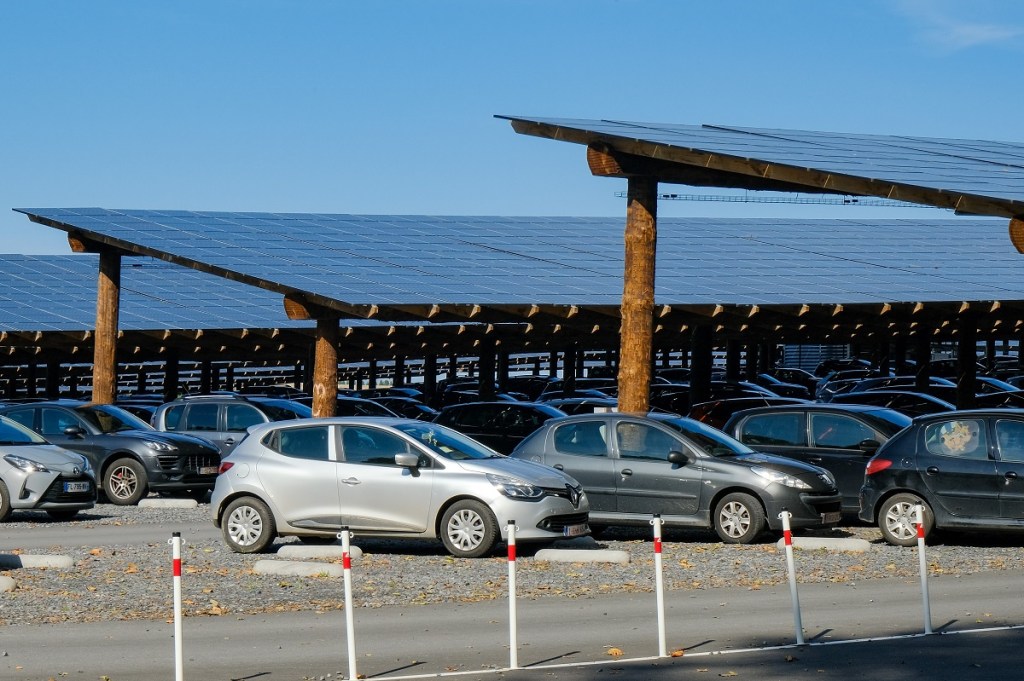
You Can Use Solar Panels to Charge Your Car
Maybe you have solar panels and are considering buying an electric car. Or you’re an electric car owner thinking about getting solar panels. Can you use solar panels to charge your car? How easy is it to do, and is it worth it? Let’s take a look at how easy it is to use solar panels to charge electric vehicles.

If you want to install a charging station at your house, solar panels are a great way to supply the energy
If you have an electric car, it makes sense that you’d want to have a charging station at your house. It’s very easy to come home and plug in your car, then let it charge over night while you sleep. If you don’t have a charging station at your house, you probably have a nearby charger that you favor, though trips may be slightly more difficult.
Installing a charging station at your house can be a good investment. It may even make you more likely to buy and use your electric car. If you have solar panels at your house, it can also be extremely cost-effective to charge your car at home. In fact, it’s possible it will even be free.
How to choose enough solar panels for your car’s needs
According to Energy Sage, choosing the right amount of solar panels you’ll need for your electric vehicle requires you to take a few factors into account. One of these is the amount of energy your electric vehicle will consume. If you already own your EV, you can easily look up how many kWh your car uses to drive 100 miles. From there, you can calculate how much energy you’ll need to run your car.
Energy Sage uses the following example to help you calculate your needs: “the 2014 Nissan Leaf, an all-electric vehicle, has a combined fuel economy rating of 30 kWh/100 miles – this means the Leaf requires 30 kWh of electricity to drive 100 miles. If you drive 25 miles on an average day, that means you’re using approximately 7.5 kWh of electricity per day – or just over 2,700 kWh of electricity in a given year. This is the “extra” amount of electricity you’ll need your solar energy system to produce.”
How to install solar panels that will last you for years to come
If you’re thinking of solar panels for your home and car, you may want to take into account not only your current home’s electric usage and electric car usage, but potential future needs as well. Try to install an amount of solar panels that will cover your usage today and perhaps an increase in usage in years to come. For example, perhaps you’ll trade another car for an EV, and need more power. Try to choose solar panels that you can add on to later.
The benefit of having more solar panels than you need rather than less is that the electric company will often pay you for extra energy that you generate but don’t use; essentially they’re buying the energy from you. Look into this before you buy so you know whether this will apply to you.
As car manufacturers are moving toward electric vehicles and away from traditional fuel-powered ones, it likely won’t be too long before the number of electric vehicles on the roads has increased exponentially. Installing solar panels now can help fuel your current electric vehicle or make it easier for you to purchase an electric vehicle in the future.


